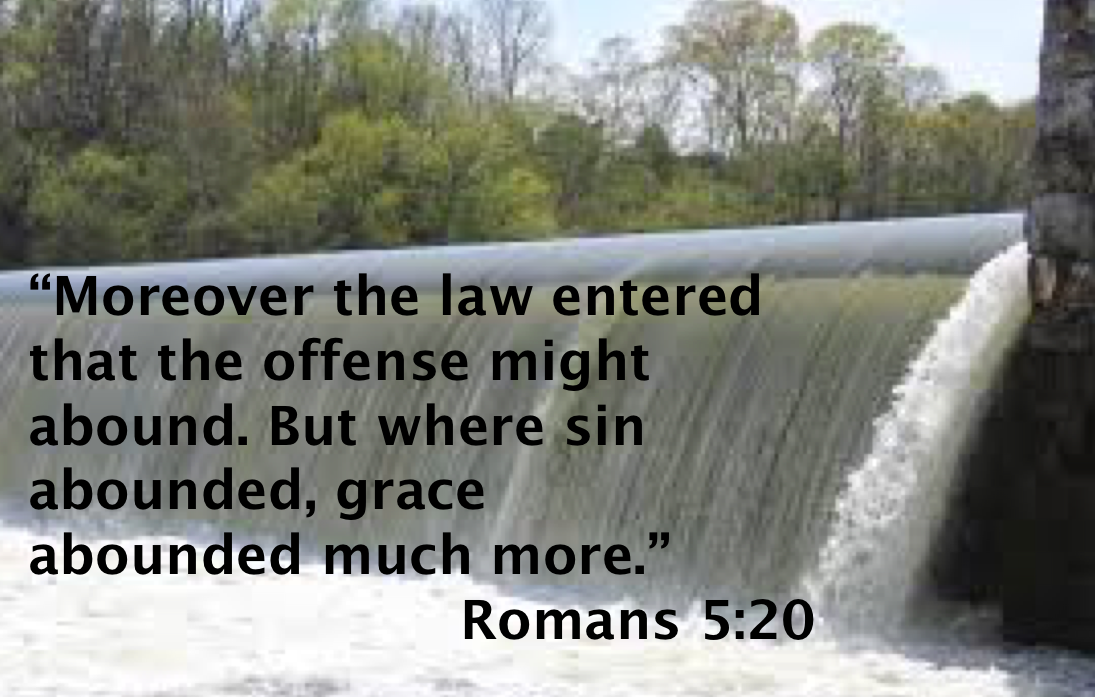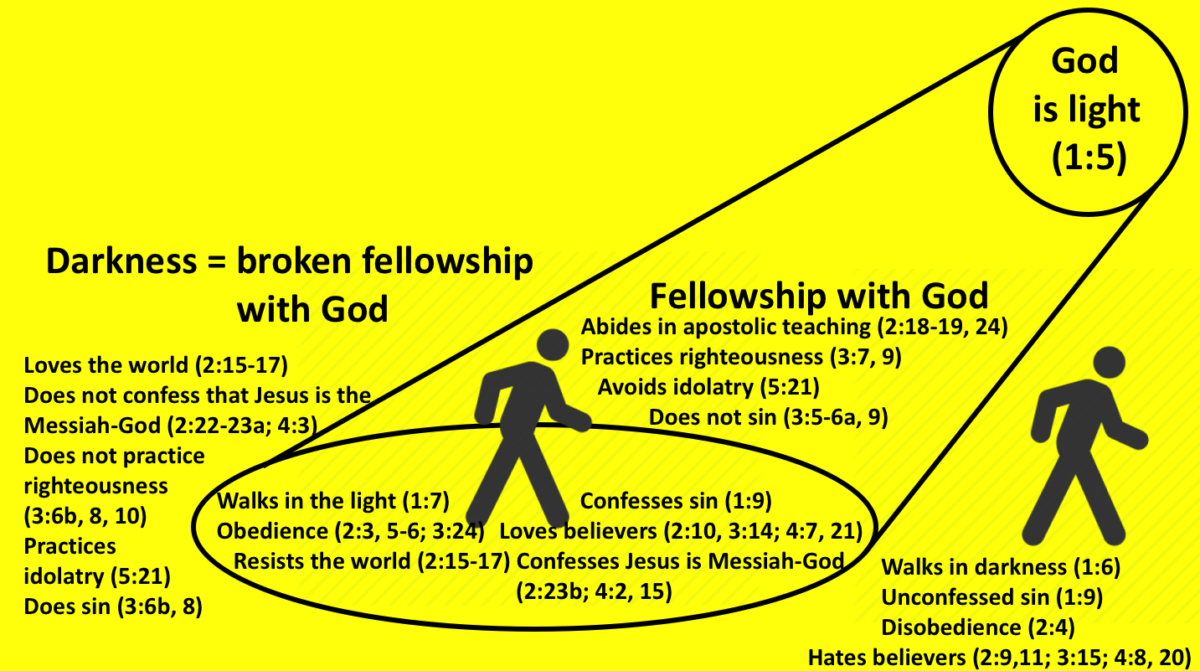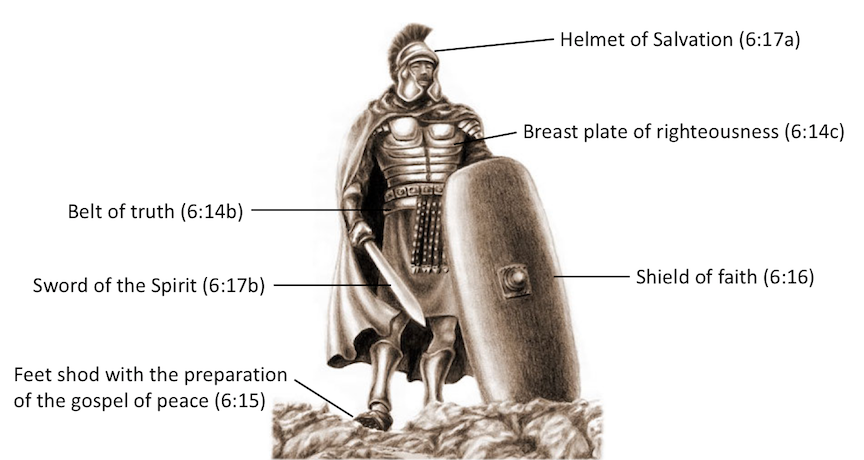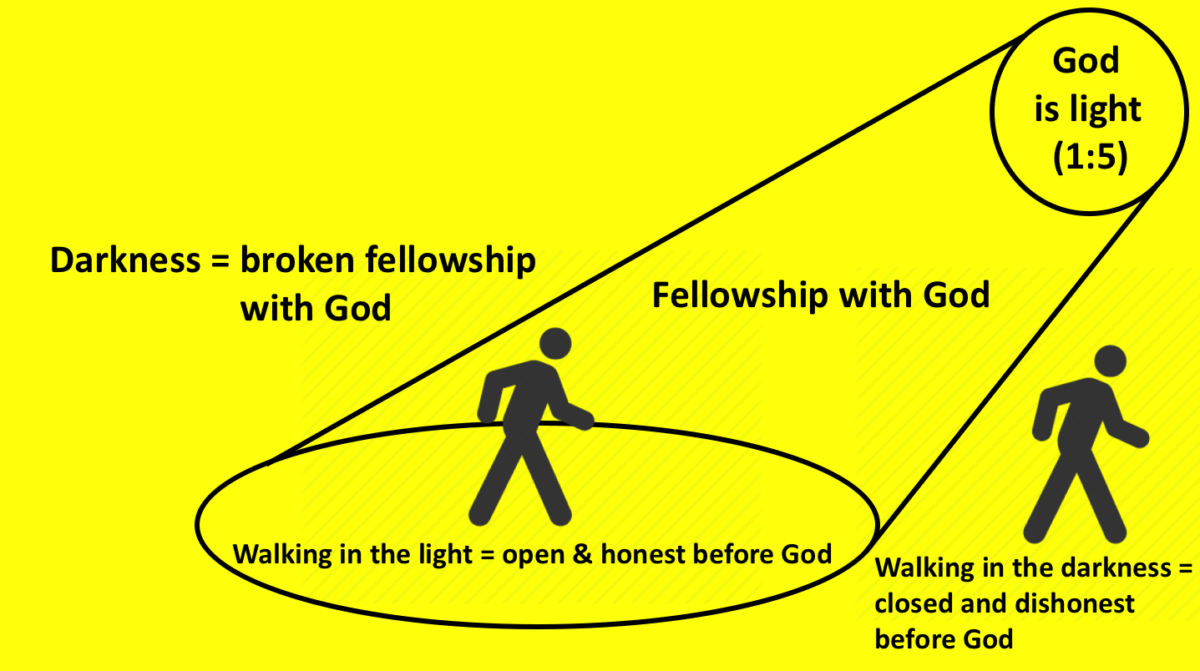I was reminded this last week that we live in a shame-based culture in the State of Iowa. Just ask Iowa State fan Carson King. At the televised Iowa/Iowa State football game on September 14, 2019, Carson held up a beer sign to raise money for more beer. But as the money poured in, he decided to donate the money to the University of Iowa’s Children’s Hospital to help fight cancer. At the time of writing this article, Carson had raised $1.5 million to help children battling cancer. But this last week a Des Moines Register reporter thought it necessary to call our attention to some indiscreet racial tweets that Carson had made eight years ago when he was 16. That reporter is no longer with the Register because readers revealed some of his own controversial tweets. [i] Why did this reporter seek to shame Carson in the wake of this good deed that he was doing for those less fortunate than him? Perhaps he wanted to build himself up by tearing Carson down. May be he wanted to avoid his own shame by shaming Carson. Whatever his reason was, I am led to talk about despising shame.
To begin, let’s look at the perfect example of Someone who
despised shame. “Looking unto Jesus, the author and finisher of our faith,
who for the joy that was set before Him endured the cross, despising the shame,
and has sat down at the right hand of the throne of God.” Hebrews 12:2
The author of the book of Hebrews is writing to Christians
who are being pressured to return to Judaism and give up on their Christian
faith. He compares living the Christian life to running a long distance race.
He challenges them to “run with endurance the race that is set before us”
(12:1b). He instructs them to run this race successfullyby “looking
unto Jesus, the author and finisher of our faith, who for the joy that was set
before Him endured the cross, despising the shame, and has sat down at the
right hand of the throne of God” (12:2). Until recently, I have overlooked
the phrase, “despising the shame.” I have been asking the Lord to show
me what this phrase means. Why did the author of Hebrews include these words
when he tells us to look “unto Jesus” as the Supreme example of living a
life of faith?
When he writes that Jesus “endured the cross” by “despising
the shame,” does this mean that Jesus despised the shame or humiliation of
crucifixion or did He despise the shame of the sin of the world that was placed
upon Him as our Substitute? Or is this referring to something else? How do we
apply this to our own Christian lives? To address these questions, I will first
define what shame is and is not, then look at how “shame” is used in the Bible
followed by focusing on what it means to “despise” shame, and conclude
with ways we can apply this to our Christian lives.
SHAME VERSUS GUILT
Before we can despise shame we must identify what shame is
not and what it is. Many people confuse shame with guilt. Guilt is the
conviction we experience when we have violated God’s standard of holiness. In
short, guilt says, “I have done wrong.” For example, when a
person hates, lies, lusts, steals, or commits adultery, he or she has a sense
of guilt for having done wrong (cf. Psalm 32:1-5; Romans 3:1-20; James 2:10).
The Bible teaches us that sin and its subsequent guilt can lead an unsaved
person to believe or trust in Christ alone as his or her Savior, resulting in
cleansing and forgiveness (cf. John 16:8-11; Acts 10:43; Romans 3:20; Galatians
3:22-24). God uses our guilt to convict us of our need for Him.
The Hebrew word for “ashamed” (cf. Genesis 2:25) is בּוּשׁ
(bosh), which means to fall into disgrace, to be embarrassed or humiliated. The
Greek word for “shame” (Hebrews 12:2) is αἰσχύνης (aischynēs) which
refers to disgrace. According to some theologians and psychologists, shame is a
feeling (or belief) that we are bad, defective, flawed, and worthless. Guilt
says, “I have done wrong,” but shame says, “I am wrong.” Instead
of focusing on what a person has done (guilt), shame focuses on who the person
is. It says that at the core of our being we are bad, inferior, and
unacceptable. Satan uses shame to condemn us and isolate us from God and one
another.
Let me try to illustrate the difference between guilt and
shame. When I say, “I feel bad about yelling at my children when they misbehave,”
that is guilt. But when I say, “I am a bad father,” this is shame.
We can feel guilt and shame at the same time. But
shame is more relational. We can feel shame as a result of our own actions and
the actions of others. There are two types of shame: true shame and
false shame.
True shame is that feeling of disgrace or
embarrassment when we have sinned. This is what Adam and Eve experienced when
they disobeyed God in the garden of Eden (Genesis 3:7-8, 10).
False shame is that same feeling of disgrace or
embarrassment about our personhood, not our actions. We can actually experience
shame when we have done nothing wrong, but because of the actions of others we
are ashamed. False shame says, “because of what was done to you, you are now
bad,” or “this happened to you because you are bad.” For example, a
child who was sexually abused may internalize what was done to him or her and
conclude, “I must be bad for that to have happened to me.” Or “because
I am bad that was done to me.”
NAKED AND UNASHAMED
When God created the first man and woman, Adam and Eve, and
joined them together as husband and wife, the Bible tells us “they were both
naked, the man and his wife, and were not ashamed” (Genesis 2:25; cf. Mark
10:6-9). Before Adam and Eve sinned, they did not experience shame. Therefore,
shame was not part of God’s original design for humankind. To be “naked”
and “not ashamed” suggests something more than not wearing any clothes.
These words describe Adam and Eve’s relationship with God and with one another.
They were able to be completely open with the Lord and each other without holding
anything back or hiding their true selves. Adam and Eve were fully known by God
and each other and they were okay with this. This enabled them to experience
uninhibited intimacy with God and with one another. They knew that they were totally accepted
and loved by God. There was nothing to fear and nothing to hide from the
Lord and each other.
Prior to the Fall, they did not experience any
self-consciousness regarding the uniqueness of their personhood as man and
woman. For example, Adam probably did not doubt his masculinity or his ability
to impress Eve as a man. He was not concerned about his biceps being big enough
or being a good enough lover for Eve. Nor did Eve wonder if her beauty was
enough to attract Adam or if her ideas were as significant as his. With an
unwavering assurance, both of them knew that who they were and what they
offered to one another was more than just good enough – it was “very good”
(Genesis 1:31).
AFRAID AND ASHAMED
But when Adam and Eve disobeyed God by eating the fruit from
the tree of the knowledge of good and evil (Genesis 2:16-17; 3:1-6), they
experienced shame for the first time. The complete innocence and vulnerability
they once had with God and one another were now lost. “Then the eyes of both
of them were opened, and they knew that they were naked; and they sewed fig
leaves together and made themselves coverings” (Genesis 3:7). They were now
self-conscious and ashamed of their nakedness before one another, so they tried
to remove their shame by covering themselves with fig leaves. They went from
holding nothing back from one another to hiding and covering their true selves.
When they put their own desires ahead of God’s will for
their lives, they may have realized they could also put their own interests
ahead of the other’s. Would Adam be able to trust Eve after she violated
God’s trust? Would Eve be able to trust Adam after he did the same thing? Once
transparent and vulnerable with each other, Adam and Eve now covered their
physical nakedness and the nakedness of their souls with fig leaves. Instead of
trusting each other, they were afraid of being hurt by one another, so they
chose to protect themselves by hiding under the cover of fig leaves.
But their sin and shame also adversely affected their
closeness with God. “And they heard the sound of the Lord God walking in the
garden in the cool of the day, and Adam and his wife hid themselves from the
presence of the Lord God among the trees of the garden” (Genesis 3:8). Instead
of being open and vulnerable before God, they now hid themselves from His
presence when He pursued them. God is presented in this verse as pursuing His
fallen children by walking in the garden in the cool of the day as if this was
something He had always done to connect with them. We might assume that God
came to them to punish and shame Adam and Eve for the wrong they had done, but
notice that God does not seek to shame His fallen children. He seeks to restore
them. “Then the Lord God called to Adam and said to him, ‘Where are you?’”
(Genesis 3:9). Why would an all-knowing God ask Adam a question to which He
already knows the answer? Because the Lord wanted a confession from Adam. “Where
are you in relation to Me?” God asks. Would Adam and Eve believe He is
still the same loving and merciful God that He had always been prior to their
disobedience? Or would they believe the lie of the serpent who implied that God
could not really be trusted (cf. Genesis 3:1-5)? The Lord did not abandon Adam
and Eve when they sinned and felt ashamed. He seeks them out to restore them to
fellowship with Himself.
But instead of trusting the Lord, Adam and Eve were now
afraid of Him. “So he said, ‘I heard Your voice in the garden, and I was
afraid because I was naked; and I hid myself’” (Genesis 3:10). Their sin
and shame now became a barrier to His loving and merciful pursuit of them. Not
only were they self-conscious of their nakedness before one another, they were
now self-conscious of their nakedness before God. By covering themselves with
fig leaves and hiding themselves among the trees of the garden, Adam and Eve
removed themselves from being able to receive God’s love, grace, and mercy
which He was freely offering to them. Their faith in God had now changed to
fear. Unfortunately their shame pushed them away from the Lord instead of
drawing them near to Him.
MODERN-DAY FIG LEAVES
Like Adam and Eve, we also try to hide our shame from the
Lord with modern-day fig leaves. We may hide behind expensive cars, motorcycles,
or homes. Some of us may take refuge behind our vast theological knowledge,
ministries, or positions of leadership. We may hide behind our busyness, humor,
sarcasm, or superficial interactions. Others may try to cover their shame with
religious efforts and rituals. Whatever fig leaves we choose to hide behind, we
are going against God’s design for us by refusing to present our true selves to
Him and to one another. This never leads to the abundant life God meant for us
to experience.
GOD WANTS TO COVER OUR SHAME
As we already saw, God did not pursue Adam and Eve in the
garden of Eden after they had sinned to shame them. He came to them in the
garden to restore them to fellowship with Himself. God is full of
lovingkindness in our failures. He is not looking for perfect people. He wants
His children in a process that He can use to mold and train them. Failures have
never hindered God – this is clear in the beginning of the Bible to the end. He
seeks to restore sinful people.
Since Adam and Eve could not remove their sense of fear and
shame by covering themselves with fig leaves, God graciously provided the
proper covering. He “made tunics of skin” through the death of an innocent
animal (Genesis 3:21). Blood must be shed. Imagine how Adam must have felt to
see one of the animals he had named and cared for being killed on his account!
Never had Adam and Eve known death. This was serious business and this was to
be God’s way of dealing with sin and shame throughout the ages. By providing a
covering with animal skins, God provided forgiveness through the “shedding
of blood” (Hebrews 9:22). God later provided forgiveness through the Old
Testament sacrificial system.
Those animals were shadows of the Babe who was born on that first
Christmas morning. He would be called “the Lamb of God” (John 1:29). Like
that first animal that was sacrificed for Adam and Eve, Jesus Christ would also
be innocent and without sin because He was and is God (John 1:1, 14, 17; 2
Corinthians 5:21; Hebrews 4:15; I Peter 3:18). And like that first sacrificial
animal, Jesus was born to die for the sins of others (John 1:29; Romans 5:8; I
John 4:9), that “whoever believes in Him should not perish but have
everlasting life” (John 3:16). Like Adam and Eve, our human efforts or
works cannot remove our sin and shame (Isaiah 64:6; Romans 4:5; Ephesians
2:8-9). Religion cannot take away our sin, guilt, and shame. Only Jesus Christ
can take away our sin, guilt, and shame (John 14:6; Acts 4:12; Titus 3:4-7).
This is called grace. Grace is receiving what we do not
deserve. We do not deserve forgiveness or everlasting life. But because of
God’s grace, He offers us His forgiveness and everlasting life freely if we
will believe or trust in Christ alone (John 3:16; Acts 10:43). The moment we
believe in Christ, God declares us to be totally righteous before Him so there
is no more guilt or shame (Romans 4:5). All our sins are removed beyond our
reach as far as the east is from the west (Psalms 103:12). They are cast out of
our sight into the deepest part of the sea (Micah 7:19). Nothing, including
our guilt and shame, can separate us from the love of God (Romans 8:38-39)!
The voice of shame will tell us that we are defined by our sins
and the sins of others. But the voice of God says when we believe in His Son, we are defined by
being in Christ so that all His beauty, goodness, holiness, and
righteousness are what God sees when He looks at us through Christ (cf. Romans
4:5; 10:11; 2 Corinthians 5:21; Ephesians 1:6).
God does not shame us. He did not shame Adam and Eve, but He
did ask them to give an account of their actions (Genesis 3:11, 13). And He
asks us to admit or confess our sins after we become Christians so He can
forgive us and cleanse us of all our sins and restore us to fellowship with Him
(Psalm 32:1-5; I John 1:9).
During His ministry on earth, Jesus Christ, who is God in human
flesh (John 1:1, 14), did not shame broken sinful people. The Bible tells us, “For
God did not send His Son into the world to condemn the world, but that the
world through Him might be saved” (John 3:17). He did not come to condemn,
but to cleanse. Christ did not come to shame, but to save.
For example, when He met a despised tax collector named Zacchaeus
who was shamed by his own actions and the actions of others, Jesus invited
Himself over to Zacchaeus’ house to accept and love on him even though others
tried to shame Jesus from doing this (Luke 19:1-7). When Jesus encountered the Samaritan
woman at the well who had five failed marriages and was currently living
with a man who was not her husband, Jesus lovingly offered her everlasting life
as a free gift (John 4:1-18). Even though Jesus knew all about the shameful
things she had done, He still loved her and disclosed His true Self to her
(John 4:19-26). No one had ever treated her with such dignity. He accepted her
as she was, but He also showed her need for God’s free gift of eternal life. She
was so impacted by His love and grace, she invited others to come see Him (John
4:28-29). When Christ encountered a woman caught in the act of
adultery, He refused to condemn and shame her by extending His forgiving
grace to her (John 8:11). Instead of shaming a prostitute, He completely
forgave her which led her to lavishly love on Him (Luke 7:36-50). Christ was
not embarrassed by the brokenness of others. Nor did He shame them. He accepted
them and forgave them.
Listen to these Scriptures which testify to the fact that God does
not turn away from brokenness:
“The Lord is near to those who have a broken heart, and saves such as have a contrite [crushed] spirit.” Psalm 34:18
“The sacrifices of God are a broken spirit, a broken and a contrite heart – these, O God, You will not despise.” Psalm 51:17
“He heals the brokenhearted and binds up their wounds.” Psalm 147:3
“For thus says the High and Lofty One Who inhabits eternity, Whose name is Holy: ‘I dwell in the high and holy place with him who has a contrite and humble spirit, to revive the spirit of the humble, and to revive the heart of the contrite ones.” Isaiah 57:15
“The Spirit of the Lord God is upon Me, because the Lord has anointed Me to preach good tidings to the poor; He has sent Me to heal the brokenhearted.” Isaiah 61:1
“I will seek what was lost and bring back what was driven away, bind up the broken and strengthen what was sick.” Ezekiel 34:16
The prophet Isaiah reminds us concerning the Messiah, “A
bruised reed He will not break, and smoking flax He will not quench” (Isaiah
42:3). Jesus quoted this verse after He healed a great multitude of people
who followed Him (Matthew 12:20). The Messiah did not deal harshly with those
who were already hurting nor did He extinguish what little hope a broken heart
possessed. He
comes along side of them to strengthen them with His presence rather than step
on them to advance His own plans. He wants to rekindle our love and passion for
Him. Unlike the religious leaders of His day, Jesus had compassion for the weak
and vulnerable. He extended gentleness and humility to the harassed and
helpless (Matthew 9:36) as well as to the weary and burdened (Matthew 11:28). He
used His supernatural power to heal, not to punish or shame. Jesus spent
much of His ministry fighting sickness and shame, not asking “Why?” or
condemning with “Who sinned?”
Christian leaders can add to the shame of the broken and bruised by being
harsh and demanding. But not Jesus. Christ is always available to empathize
with us and understand us when we are hurting (Hebrews 4:15). He knows
exactly what to say and do when we are vulnerable so He can lift us up and set
us in a broad place. He is on our side. He is not against us (cf. Psalm
118:5-9; Romans 8:31-39).
DESPISING THE SHAME
When the writer of Hebrews points out that Jesus “endured
the cross” by “despising the shame,” to what was he referring? The
word “despising” comes from a compound Greek word, kataphronéō, which
means “against, down” (kata) and “to think” (phronéō).” Literally it
means “to think against” or “to think little of.” Jesus was able
to endure the embarrassment or humiliation of the cross and the sins He bore by
“despising the shame” associated with them. He simply did not pay
attention to that shame because it was not His. This shame was of little
consequence compared to the surpassing “joy that was set before Him” when
He would sit “down at the right hand of the throne of God” (Hebrews 12:2). Christ
endured the pain and shame of the cross because of the joy that awaited Him on
the other side when He would sit down on His everlasting throne next to His
heavenly Father (cf. Hebrews 1:8-9).
Hebrews 2:9-10 also sheds some light on this idea of
despising the shame. “9 But we see Jesus, who was made a little
lower than the angels, for the suffering of death crowned with glory and honor,
that He, by the grace of God, might taste death for everyone. 10 For
it was fitting for Him, for whom are all things and by whom are all things, in
bringing many sons to glory, to make the captain of their salvation perfect
through sufferings. 11 For both He who sanctifies and those who are
being sanctified are all of one, for which reason He is not ashamed to call
them brethren.” The shame that Jesus endured to cleanse us of our own shame
(2:9) was nothing compared to His great love for us (2:10; cf. Romans 5:8). Christ
endured all that shame for us so He would “not be ashamed to call” us
His brothers and sisters (2:11). He has replaced our shame with a place of
dignity and honor in His family.
Christ endured being abandoned by His closest friends, being falsely accused, being beaten, mocked, spit upon, stripped down to His undergarments in public, and nailed to a cross like a terrible criminal to pay the penalty for all of our sins (Matthew 26:47-27:44). Worst of all, Jesus endured being rejected by His own Father in heaven when the sins of the world were placed upon Him because God is holy and righteous and cannot be around sin (Matthew 27:45-46). Did Jesus enjoy this shameful treatment associated with His crucifixion? No!!! He despised or looked down with contempt toward the shame associated with His sufferings and our sins. Jesus is showing us that just because something bad happens to you does not make you bad.
Like Jesus, we may have experienced shame by being falsely
accused. During our childhood we may have been told, “You are no good.”
“You cannot do anything right.” “You will never amount to anything.” Or
like Jesus, some of us have been abandoned by those closest to us.
Perhaps a parent abandoned you physically at an early age or they abandoned you
emotionally. They lived in the same house with you, but they did not provide
the emotional nurturing and support you needed. Like Jesus, you may have been beaten
physically by those in authority over you. As a result, the voice of shame
told you that this happened to you because you are bad. You may have been mocked
and verbally mistreated and the voice of shame said you deserved this. Like
Jesus, we may have experienced the humiliation of being put on display
with minimal clothes on (or no clothes on) in front of others.
Or may be you have been shamed because of your commitment to follow Jesus. Perhaps you have been abandoned by those closest to you, falsely accused, beaten, mocked, or stripped naked all because of your love for Jesus. Please realize that Jesus understands how you feel because He has been through something similar (cf. Hebrews 4:15). Knowing He understands and sympathizes with us can embolden us to approach Him in prayer for His supernatural assistance. So instead of looking to our own shame whether it is based on our actions or the actions of others, we are to look to Jesus who despised the shame when He endured the cross on our behalf (Hebrew 12:2).
APPLICATION
How can I despise shame as I run the race that is set
before me (Hebrews 12:2)?
Before you can run in this race called the Christian life, you
much first enter this race by…
1. Believing or trusting in Jesus to give you eternal life and remove all of your shame. If you are not in a relationship with Jesus Christ, you can begin that relationship with Him now before it is too late for you. The Bible tells us that all of us have sinned against God and deserve to be punished forever in hell (Romans 3:23; 6:23; Revelation 20:15). But God loves us so much, He sent His only Son, Jesus Christ, to earth to die for our sins and rise from the dead, proving that He is God (Romans 1:3-4; I Corinthians 15:3-6). Jesus wants to set us free from shame because He took on the shame (and sin) that belonged to us so we would not let our shameful past keep us from coming to Him in faith. He covers us with His own righteousness when we place our faith in Him so we do not have to live with shame any more: “Whoever believes on Him will not be put to shame” (Romans 10:11; cf. Romans 4:5; John 3:16). When you believed in Jesus, you were covered with His righteousness and beauty so that God sees nothing in you that is worthy of condemnation or shame (cf. Romans 4:5; 8:1a, 31-39; 2 Corinthians 5:21).
After you come to Christ in faith to save you from hell, you
can…
2. Look to Jesus
instead of your shame to live the Christian life. Jesus despised or did not
pay attention to the shame associated with His sufferings and our sins (Hebrews
12:2).He thought little of that shame compared to the surpassing joy He
would experience when He would sit down on His everlasting throne next to His
Father (cf. Hebrews 1:8-9). He did not let that shame keep Him from finishing
His race successfully and nor should we let our shameful past or the
shame-based lies we believe keep us from finishing the race set before us. The
Bible tells us, “4 I sought the Lord, and He heard me, and
delivered me from all my fears. 5 They looked to Him and were
radiant, and their faces were not ashamed” (Psalm 34:4-5). Keep your eyes
on the Lord Jesus and your face will not be ashamed.
This involves ignoring the voice of shame in our
Christian lives which tries to bully us from finishing the race Christ has
called us to run. Shame tries to scare us by exposing our vulnerabilities and
reminding us of our failures. When shame tries to intimidate us, pay little
attention to it. The Bible says, “Do not fear, for you will not be ashamed; neither
be disgraced, for you will not be put to shame; for you will forget the shame
of your youth, and will not remember the reproach of your widowhood anymore” (Isaiah
54:4). Christ removed all our shame at the cross so you can forget that it
ever was, and focus on Him.
3. Replace your shame-based lies with the truth (John
8:31-32). Try to identify which of the following shame-based lies apply to
you and then ask God the Holy Spirit to replace them with the subsequent truth
and apply the truth to the depths of your soul.
If you come from an ABUSIVE (emotional, physical,
sexual, verbal abuse) family of origin, you may believe…
Lie: “Nobody would love me as I am.” Truth: “God loves me regardless.” Romans 5:6, 8
Lie: “I could never be forgiven.” Truth: “I am totally forgiven in Christ.” Colossians 2:13-14
Lie: “I am bad because of what happened to me.” Truth: “I am precious to Jesus because of what happened to Him.” Matthew 13:44-45; I Corinthians 6:19-20
Lie: “I am an unacceptable person.” Truth: “I am totally accepted in Christ.” Romans 8:1a; Ephesians 1:6
Lie: “I cannot get my needs met by depending on others.” Truth: “I can learn to depend on healthy people to help meet my needs.” John 13:34-35; Galatians 6:2
If you come from a CODEPENDENT family of origin, you
may believe…
Lie: “I must be liked and loved by everyone.” Truth: “I am likeable and loveable, but not to everyone.” Jesus was perfect, but rejected by men – Isaiah 53:3
Lie: “I am responsible for the feelings of others.” Truth: “Every person is responsible for his or her own feelings.” Proverbs 23:7a
Lie: “Feelings of anger, anxiety, depression, and loneliness are wrong.” Truth: “Feelings are neither right or wrong, they are just feelings. How you respond to your feelings can be wrong.” Ephesians 4:26; Philippians 4:6-8
Lie: “I need everyone’s support to be healthy.” Truth: “Some of my burdens I must let God carry and some of my burdens I am to share with others. I need His wisdom to discern the difference.” Psalm 55:22; Galatians 6:2, 5; James 1:5; I Peter 5:6-7
If you come from a PERFECTIONISTIC family of origin,
you may believe…
Lie: “I am what I do.” Truth: “I am a child of God based on what Christ has done.” John 1:12; I John 3:1-2
Lie: “I can never be good enough.” Truth: “In Christ I am good enough.” 2 Corinthians 5:21; Ephesians 1:6
Lie: “I must be perfect to be accepted and loved.” Truth: “I am totally accepted and loved by God regardless of what I do.” Jeremiah 31:3; Ephesians 1:6
Lie: “I must be perfect.” Truth: “It is good enough to do my best and not be perfect.” Colossians 3:23-24
Lie: “I should never be angry, anxious, depressed, or lonely.” Truth: “Anger, anxiety, depression, and loneliness are signals to draw close to God.” Psalm 4:4-5; 42:5; 72:21-26; Philippians 4:6-8; 2 Timothy 4:16-17
Lie: “Failure is the end of the world.” Truth: “Failure is an opportunity to learn.” Luke 22:31-34; Hebrews 12:11
4. Look to the reward of ruling with Christ in the
future. Christ was able to endure the cross and despise the shame by
focusing on the joyful reward of ruling next to His Father afterward (Hebrews
12:2; cf. 1:8-9). Likewise, the Bible promises a great reward to those who hold
fast to their Christian faith. “Therefore do not cast away your confidence,
which has great reward” (Hebrews 10:35; 11:6). This great reward includes
ruling with Christ in His coming Kingdom on earth if we remain faithful to Him
to the end of our lives on earth (Hebrews 1:5-13; 3:1, 14; 4:1, 11; 9:15; cf. Luke
22:28-30; 2 Timothy 2:12; Revelation 2:25-27; 3:21).
Like Jesus, Moses also despised the shame that can accompany
faithfulness to God by looking to his future reward. “24 By faith
Moses, when he became of age, refused to be called the son of Pharaoh’s
daughter, 25 choosing rather to suffer affliction with the people of
God than to enjoy the passing pleasures of sin, 26 esteeming the
reproach of Christ greater riches than the treasures in Egypt; for he looked to
the reward” (Hebrews 11:24-26). By faith Moses despised the shame (“passing
pleasures of sin”) of ruling in Egypt so he could lay hold of his future
reward of ruling with Christ.
When I ran track in high school, I trained hard because I
wanted to win a medal in my race. Even though I had failed to win a medal in
previous races, I still prepared for the next race thinking I could win. In
other words, I despised the shame of failing to win in the past by thinking little
of it. Keeping the thought of winning a medal in the front of my mind as
I trained and eventually competed in the race, motivated me to do my very best
and not give up.
The same is true in our Christian lives. To earn the reward
of ruling with Christ, we must live faithfully for Him to the end of our
Christian lives. To do this, it is important to train our minds to imagine
Jesus rewarding us at the Judgment Seat of Christ, saying to us, “Well done,
good and faithful servant; you were faithful over a few things, I will make you
ruler over many things. Enter into the joy of your lord” (Matthew 25:21).
Instead of focusing on our past shame or the shame that can
accompany following Christ, focus on Jesus who endured the cross, despising the
shame that we deserved, and sat down at the right hand of the throne of God so
we could sit with Him in His future Kingdom on earth if we remain faithful to
Him. The more we look to Jesus now, the less true shame we will experience when
we stand before Him at the Judgment Seat of Christ after His coming for us. “And
now, little children, abide in Him, that when He appears, we may have
confidence and not be ashamed before Him at His coming” (I John 2:28).
5. Fight shame with God’s grace. The Bible says, “Moreover the law entered that the offense might abound. But where sin abounded, grace abounded much more” (Romans 5:20). Whether we have spent more time in jail or in church, God’s grace is available to forgive our sins and remove all our shame. His grace includes everyone. When people start deciding who is deserving of God’s grace and who is not, they are cheapening His grace. The fact is none of us deserve His grace. We deserve God’s justice and punishment (Romans 3:23; 6:23a). So instead of pointing the finger at others, let’s give them God’s grace so they can discover that God is the God of second chance (Acts 20:24; Ephesians 4:32). His grace is in the business of forgiving and restoring guilty sinners so that all their shame is removed!
[i] https://fox61.com/2019/09/27/iowa-reporter-who-exposed-racist-tweets-no-longer-at-the-paper-after-readers-revealed-his-own/.









